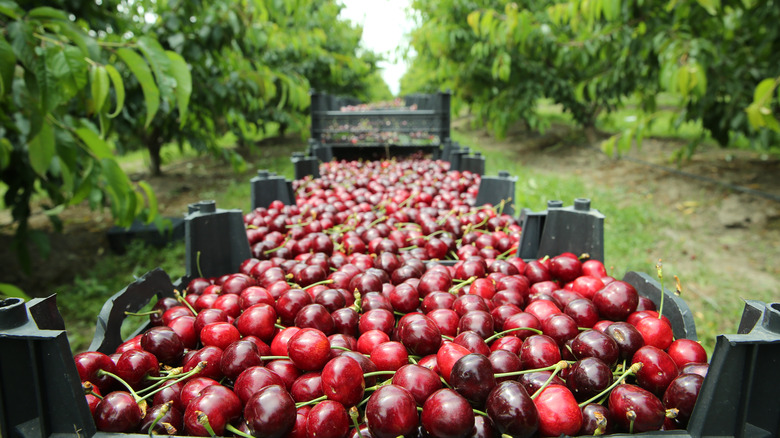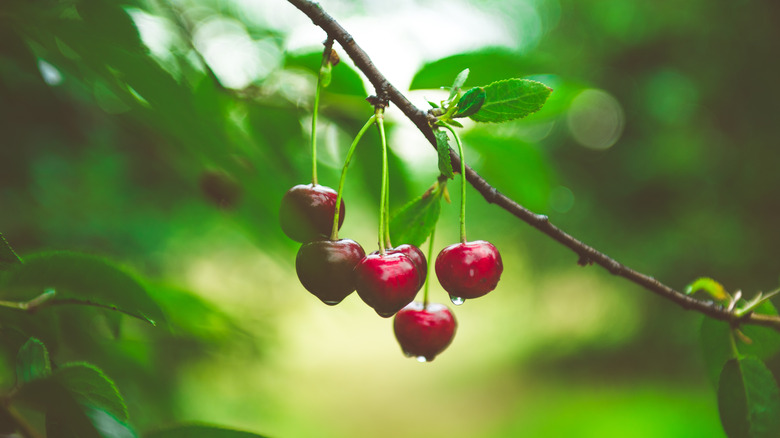This Country Produces More Cherries Than Any Other In The World
Cherries are an absolute treat whether you like them in your Shirley temple, turned into your pies, or settled atop a dollop of whipped cream. The cherry represents sweetness and is a staple in the dessert world. Cherries are easily recognizable for their glossy red skins and long stems.
Even though these berries are often paired with some pretty sugary food, the fruit themselves are great for you, containing anti-inflammatory properties and antioxidants which will help to keep your body healthy, according to Healthline. Fresh cherries have a short shelf life and are harvested from April through July, so if you love this fruit, you have to jump on them while they're in season.
At the beginning of summer, it seems like the world revolves around cherries, and if you live in the United States it might feel like we grow all the berries in the world due to the tons of fruit crowding grocery stores and farmers' markets. But in reality, the U.S. comes in second place with cherry production.
The Fertile Crescent
Atlas Big reports that Turkey is the world leader in cherry production followed by the U.S. which only produces about half of what Turkey does. No other country in the world comes close to growing the 664,224 tons of cherries the Turkish produce annually.
But this is nothing new. The country is actually the native land of the sweet cherry, according to the International Society for Horticultural Science. A majority of Turkish cherry farmers still harvest their fruit in the traditional manner, using local plant varieties, and letting nature take its course in the groves (no tree training or modern irrigation systems). However, in recent years, more farmers are modernizing and updating their techniques. The most popular cherry currently grown in Turkey is the 0900 Ziraat variety, famous for its maroon and sweet, juicy flesh.
Even the name "cherry" is related to Turkey. It is said that the name of the fruit is tied to that of a Turkish town once called Cerasus, further cementing Turkey's historical connections with the fruit (via Northwest Cherry Growers).

